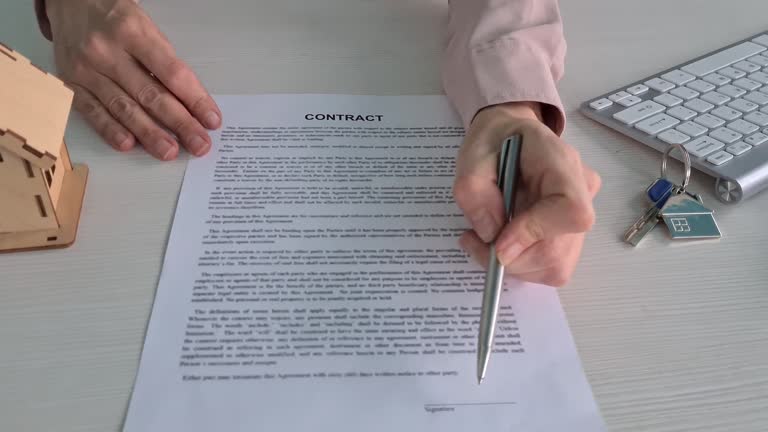Deed notarization is an essential process in legal documentation, particularly in property transfers and real estate transactions. It serves as a safeguard to verify the authenticity of the involved parties and prevent fraud. Whether you’re buying a home or transferring property, understanding deed notarization in Murfreesboro TN is crucial.
What is Deed Notarization?
Deed notarization is the process of having a deed, a legal document, certified by a notary public. A deed is an official document that transfers ownership or interest in real property from one party to another. The notary’s role is to witness the signing of the deed, verify the identity of the signers, and ensure that all parties are entering into the agreement voluntarily and knowledgeably.
Why is Deed Notarization Important?
The notarization of deeds is important for several reasons:
- Prevents Fraud: Notaries verify the identities of all parties involved, ensuring that no unauthorized individuals are fraudulently signing the document.
- Legal Recognition: In many jurisdictions, notarization is required for the deed to be legally valid and enforceable.
- Public Record: Once notarized, deeds are often submitted to public record, providing a transparent and documented history of property ownership.
Common Types of Deeds That Require Notarization
Different types of deeds may require notarization based on the transaction and jurisdiction:
- Warranty Deed: Guarantees the property’s title is clear and free of any claims or liens.
- Quitclaim Deed: Transfers the grantor’s interest in a property without guaranteeing the status of the title.
- Grant Deed: Transfers ownership of property and assures the grantor has not sold or transferred the property to anyone else.
- Special Warranty Deed: Offers limited warranties and covers only the period during which the grantor owned the property.
The Deed Notarization Process
The process of deed notarization typically follows these steps:
- Preparation of the Deed: The document is prepared by a legal professional or the parties involved in the transaction.
- Meeting with a Notary Public: All parties must meet with a notary, bringing valid identification (such as a driver’s license or passport).
- Verification of Identity: The notary verifies the identity of each party to ensure authenticity.
- Witnessing the Signing: The notary witnesses the parties sign the deed, ensuring they are doing so voluntarily and without duress.
- Affixing the Notarial Seal: Once the document is signed, the notary affixes their seal or stamp, certifying the document as legally notarized.
Who Can Notarize a Deed?
Only a licensed and certified notary public can notarize deeds. A notary must be appointed by the state or other governing authority, and they must be impartial to the transaction. Some states may also require specialized training for notaries who handle real estate transactions.
Requirements for Deed Notarization
To notarize a deed, certain requirements must be met:
- Valid Identification: Each party involved in the deed must present government-issued identification (e.g., driver’s license, passport).
- Personal Appearance: All parties must physically appear before the notary during the signing process.
- Willingness to Sign: The notary must confirm that all parties are signing the deed voluntarily, without any form of coercion.
- Complete and Accurate Document: The deed must be complete, with no blank spaces, before notarization.
What Happens After a Deed is Notarized?
After the deed is notarized, it may need to be filed with the appropriate government office, such as a county recorder’s office, depending on local laws. This step ensures that the deed becomes part of the public record, further safeguarding the transaction.
How Much Does Deed Notarization Cost?
The cost of deed notarization varies by state and notary public. In many places, notaries charge a fee for their services, which can range from a nominal amount to a more substantial fee for complex transactions. Some states set maximum fees for notarial services, while others allow the notary to charge based on the transaction’s complexity.
Can Deeds be Notarized Online?
Yes, in some jurisdictions, remote online notarization (RON) is allowed, making it possible for parties to have a deed notarized digitally. In these cases, the notary uses video conferencing and secure platforms to verify identities and witness the signing. This method has gained popularity due to convenience, especially during the COVID-19 pandemic. However, it’s essential to verify if remote notarization is legal in your area.
FAQs
Is deed notarization mandatory for all real estate transactions?
In most cases, yes. Many jurisdictions require notarization of deeds to make property transfers legally binding and enforceable. However, specific requirements may vary based on local laws.
Can I notarize a deed myself if I am a notary public?
No, a notary cannot notarize documents where they have a direct interest in the transaction. Deed notarization requires an impartial third party to ensure the integrity of the process.
What happens if a deed is not notarized?
If a deed is not notarized, it may not be legally valid, which can lead to disputes over property ownership. Additionally, the deed may not be accepted for filing in public records, complicating future transactions.
Can a notary notarize a deed without all parties present?
No, all parties involved in the deed must be present during the notarization process. The notary must verify their identity and witness the signing.
How long does deed notarization take?
The deed notarization process is relatively quick, usually taking 15 to 30 minutes, depending on the complexity of the transaction and the number of parties involved.
Conclusion
Best deed notarization in Murfreesboro TN plays a vital role in ensuring the validity and security of property transactions. By involving a notary public, parties can rest assured that their agreement is legally sound, free from fraud, and properly recorded. Whether you are buying or selling property, understanding the deed notarization process is key to protecting your investment. Always check your local laws or consult a professional to ensure your deed is handled correctly.







